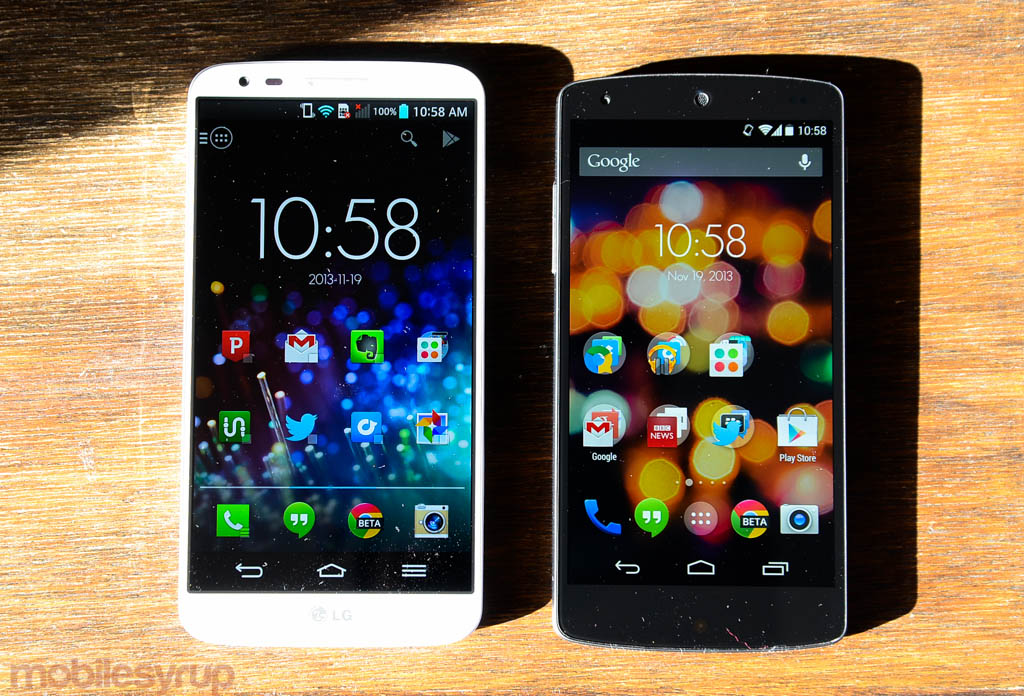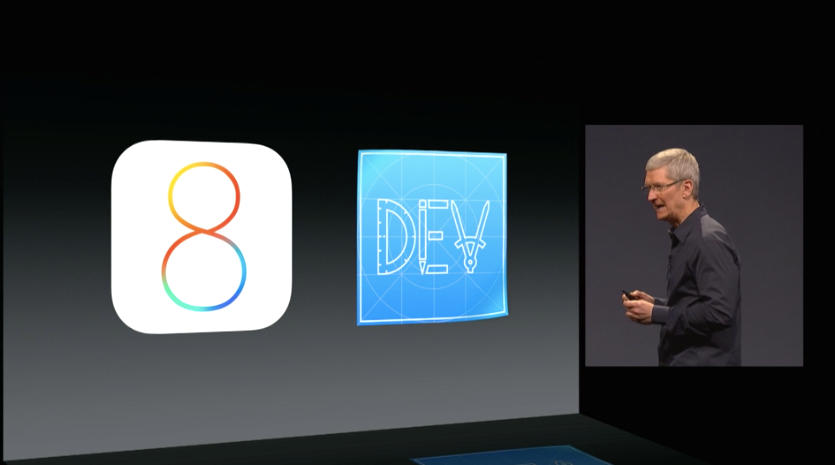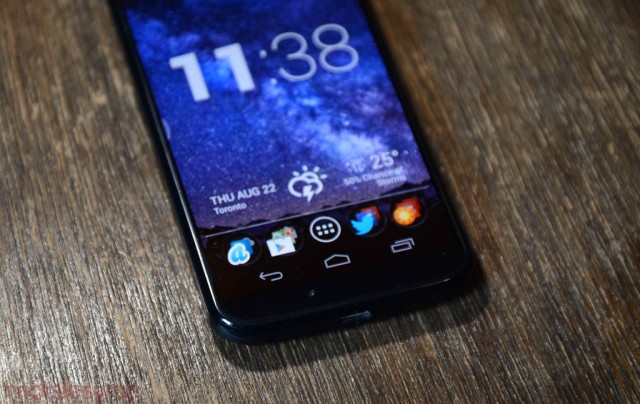
Welcome to Tête-à-tête, a series where two of our writers converse on interesting topics in the mobile landscape — through chat. Think of it as a podcast for readers.
This week, Douglas and Daniel talk about whether Android needs a drastic design overhaul.
Daniel Bader: As we inch closer to Google I/O on June 25th, an increasing number of snippets pertaining to the next release of Android are coming to light. In addition to Android Wear, the company’s wearable play, Google seems to be preparing to introduce a new design language for its products, and while Android would be a central tenet, the new schematics appear to apply to apps designed for iOS, Chrome OS and the web, too.
Google has been playing an increasingly important part in peoples’ lives; the company is inextricably linked with search, obviously, but Gmail, Google Now, Maps and many other important services have transcended platform. Because it doesn’t directly derive any revenue from Android, it’s in Google’s best interest to develop capable, attractive apps for a diverse set of platforms. In other words, whereas OS X and iOS are synonymous with Apple, Android merely provides the best conduit for Google services.
With this in mind, Android Police’s recent exposition detailing Quantum Paper, Google’s upcoming set of revamped design guidelines for Android, iOS, Chrome OS and the web have led us to an interesting avenue: does Android need a drastic design overhaul? Of course, the question is largely moot since stock Android is one of the most uncommonly-utilized “versions” of the operating system. But Google issues updates to stock Android not merely as a guideline for other OEMs (to thoroughly ignore) but as a canvas for the best experience to underlie its services.

Douglas Soltys: First the easy question, and then I’ll propose a more difficult one myself. YES, OF COURSE ANDROID NEEDS A DESIGN OVERHAUL. It is, at worst, ugly, and at best, utilitarian. It is detailed-oriented rather than experience-oriented; it’s drab. For those that would counter that Android is entirely functional and looks aren’t everything, I say this: form helps define function. There is a reason why Apple software (and hardware) elicits an emotional response, most strongly in those that consider themselves creative-types, and this has been true since the original Macintosh, and never more true than just prior to the iPod launch, where the only people who still bought Apple products were said creative types (and Marathon fans).
That may smack some as aesthetic elitism, so I’ll put it another way: if you were to give someone unfamiliar with mobile technology their first smartphone, would it be an Android? Probably not, because they’d have an easier time figuring out how to use iOS or even Windows Phone.
Now that I’ve set off a tire-fire in the comments section, I’ll go one step further. Does Google even care about Android? As you correctly stated, many of the services that Google profits from transcend Android or any one platform. I would argue that Google doesn’t care about platforms specifically, but about the Internet – broadly defined here as that ‘world wide web’ of connected devices and services, sharing rich user data that can be mined and monetized through ads. Apple might care about how iOS looks, how well its design integrates with OS X, and perhaps how certain 3rd party apps and services perform on its platform, but the company’s interest stops at the edge of its hardware. Google, as a data company, knows no such bounds. The more I read about Quantum, the more ready I am to believe that Google’s end goal is a unified design for the Internet, one which aligns with its interests. That goes beyond simple palette swaps and new icons to broadly defining how digital information is presented, processed, and consumed.

Daniel Bader: As someone who’s used Android since the early-alphabet days, I can attest to the fact that its visual acuity today is worlds better than it was just three years ago. Up until Gingerbread, I’d agree with your assertion that Android was “at worst, ugly, and at best, utilitarian.” Today, though, we’re looking at an operating system, at least in its stock format, that rivals iOS and Windows Phone for, if not a design win, then a design compromise. Yes, Apple sweats the small details, and hardcore users (namely developers and “never-gonna-give-you-up” loyalists) jump on that, but Android as a whole is decidedly not ugly.
The problem is that until recently its design language was in flux, and developers didn’t know, or care to, take advantage of the many, many openings Google left for them. Leave behind for a second the outliers, the companies like Facebook and Twitter that attempt to derive uniformity across ecosystems, often at the expense of the platforms on which the apps inhabit, but until early 2013 it was difficult to find attractive, well-designed Android apps that conformed to Google’s design guidelines.
As any list of recommendations does, Google’s is once again set to evolve, the difference now, though, that it cares a lot about a lot of other things in mobile. I think Mountain View will always say up front that Android is its most important mobile ecosystem, but it’s happy to bring most services to iOS and the mobile web if it can; with iOS 8, it’s set to be able to dig even deeper into Apple’s world with extensions.
The other part of the puzzle is that, as I said earlier, the more platforms on which Google’s services look and feel recognizably Googlish, the better for them. Gmail is not an Android app; Docs is not a piece of tablet software. If Google can effectively unify its design guidelines without alienating both Android users and developers, they’re on the right track.
Douglas Soltys: Agreed that a successful attempt by Google to unify design guidelines will have a trickle down effect on Android. But while I also agree with your Android experience, I wonder how many people have shared it. As we discussed in our last tête-à-tête, only 9% of Android users are currently running KitKat, and that’s not accounting for stock versus OEM branded versions. Is there a common Android experience? If so, what is it? And how will Google I/O improve it?
MobileSyrup may earn a commission from purchases made via our links, which helps fund the journalism we provide free on our website. These links do not influence our editorial content. Support us here.


